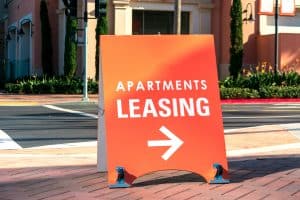Apartment Market Metrics on the Rise: NMHC

The Market Tightness Index increased from 81 to 96 last quarter, achieving the highest index number on record. That revealed broad accord among respondents of tightening market conditions. Some 92 percent of respondents reported tighter market conditions vis-à-vis three months earlier, as opposed to only 1 percent who reported looser conditions. Seven percent reported conditions no different than last quarter.
As rosy as the report appeared, NMHC urged readers to avoid overexuberance.
“I would caution to not overinterpret these figures. It’s important to keep in mind that prior to these last two quarters, the Quarterly Survey had indicated looser market conditions for five straight quarters, primarily due to the pandemic,” Chris Bruen, NMHC senior director for research, told Multi-Housing News.
“Therefore, as vaccinations increase and the economy begins to recover, it is perhaps not surprising that the apartment market also would improve and become tighter, (with) higher occupancy and rent growth, relative to where it was during the heart of the pandemic,” he added.

INDEX BREAKDOWN
The Sales Volume Index edged up from 77 to 79, a sign of ongoing hikes in apartment sales volume. More than half of respondents reported higher sales volume than three months earlier, while only 3 percent reported lower sales volume and 31 percent argued volume remained unchanged.
The Equity Financing Index inched higher, from 68 to 69. Those finding equity financing more available than three months earlier represented 41 percent of respondents. Just 3 percent found equity financing less available, 41 percent saying it was unchanged.
The Debt Financing Index shot from 44 to 71 percent, marking the first time in three quarters it had risen beyond the breakeven level of 50. Specifically, 45 percent said conditions for debt financing were better than the previous quarter, 39 percent believed conditions were unchanged, and 3 percent asserted conditions were worse.
“Overall, these survey results are good news for the apartment industry, and show that the industry continues to recover from the worst of the pandemic and related economic distress,” Bruen said. “Looking forward, there will be challenges, but market fundamentals are strong.”
Source: multihousingnews.com















 Accessibility
Accessibility